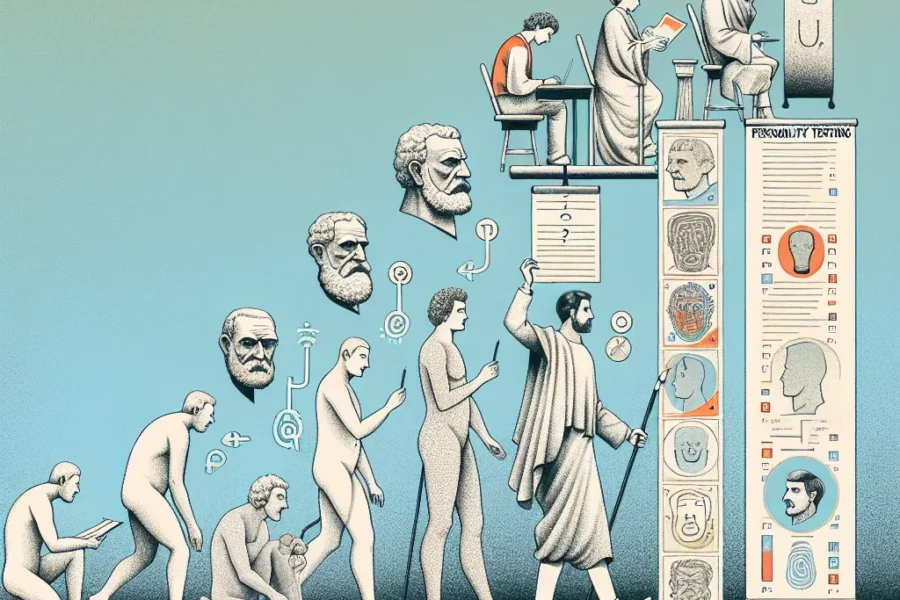Carl Rogers, a pioneering figure in the realm of psychology, has left an indelible mark on therapeutic practices through his innovative approach to client-centered therapy. Rogers’ humanistic perspective on psychological treatment has revolutionized the way therapists interact with clients, emphasizing empathy, personal growth, and the inherent potential of the individual. This article delves deep into the legacy of Carl Rogers and explores the enduring impact of his work on modern therapeutic practices.
Born on January 8, 1902, in Oak Park, Illinois, Carl Ransom Rogers grew up in a strict and religious family, which later influenced his interest in human behavior and non-authoritative approaches to therapy. He began his academic journey at the University of Wisconsin-Madison, initially studying agriculture before shifting his focus to history and eventually to psychology.
Rogers’ most significant contribution to the field of psychology was his development of person-centered therapy, also known as client-centered therapy. This approach is built on the belief that every individual possesses the capacity for self-healing and personal growth if provided with the proper environment. It stands in stark contrast to the more directive and diagnosis-focused therapies that dominated the landscape at the time.
At the core of person-centered therapy are three key elements that Rogers identified as crucial for effective therapeutic change: congruence, unconditional positive regard, and empathetic understanding. Congruence refers to the therapist’s authenticity and transparency with clients, enabling a genuine relationship to form. Unconditional positive regard involves the therapist accepting and valuing the client as a person without judgment. Lastly, empathetic understanding requires the therapist to deeply comprehend the client’s feelings and experiences.
These principles led to a collaborative relationship between therapist and client, with the therapist acting as a facilitator of change rather than an authoritative figure dictating treatment. The therapist’s role is to create a supportive environment that allows clients to explore their thoughts and emotions freely, fostering self-awareness and empowering them to resolve their own problems.
Rogers’ emphasis on the individual’s capacity for self-guided healing was a departure from other therapeutic approaches that tended to focus on the therapist’s expertise in diagnosing and treating clients. His work underscored the importance of the therapeutic relationship as a critical factor in the success of psychological interventions.
Rogers’ client-centered therapy was a beacon of hope for those who felt marginalized by traditional forms of psychiatric treatment. His approach advocated for an egalitarian relationship between the therapist and client, paving the way for more democratic forms of therapy that respected clients’ autonomy and inner resources.
In addition to his role in shaping therapeutic processes, Rogers made significant contributions to the conceptual framework of therapy. He introduced the idea of the “fully functioning person”—an individual open to experience, living in the moment, continuously growing, and capable of maintaining harmonious relationships. This concept helped redefine the objectives of therapy, shifting the goal from simply alleviating symptoms to supporting the holistic development of the person.
Rogers’ work also extended beyond the realm of individual therapy. He applied his theories to group settings, education, and even international conflict resolution, demonstrating the wide-ranging applicability of his humanistic principles.
Throughout his career, Carl Rogers authored several influential books, including “On Becoming a Person” and “A Way of Being,” which have shaped academic discourse and therapy practice. His writings emphasized the importance of personal responsibility and the potential for human growth—a message that resonated with therapists and clients alike.
Rogers received numerous awards and honors for his groundbreaking work, including the Award for Distinguished Scientific Contributions from the American Psychological Association (APA) in 1956. His legacy continues to inspire therapists around the world, ensuring his principles remain integral to the practice of psychology.
The impact of Carl Rogers on therapeutic practices is evident in the popularity of humanistic therapies today, including Gestalt therapy, existential therapy, and narrative therapy. These approaches all share Rogers’ fundamental belief in the human capacity for self-awareness and self-directed change, affirming his pioneering role in shaping contemporary therapeutic thought.
In the realm of education, Rogers’ learner-centered teaching philosophy has influenced pedagogical techniques, supporting the idea that students are active participants in their own learning processes, much like clients are in therapy. It’s a testament to his enduring influence that his concepts are applied in diverse fields, signaling a broader humanistic movement in working with people.
Furthermore, the field of positive psychology, with its focus on strengths, well-being, and optimal functioning, owes much to Rogers’ affirmation of the positive aspects of the human experience. Positive psychology integrates many of Rogers’ insights into its framework, highlighting the potential for personal growth and fulfillment.
In conclusion, Carl Rogers’ impact on therapeutic practices cannot be overstated. His client-centered therapy has reshaped the therapeutic landscape, providing a blueprint for a more humane and effective approach to psychological treatment. While therapeutic models will continue to evolve, Rogers’ emphasis on empathy, respect for the individual, and the power of the therapeutic relationship will undoubtedly remain central to the art and science of therapy. His legacy endures as a guiding light for mental health professionals who strive to foster healing and growth in their clients, ensuring that Carl Rogers’ influence will be felt for generations to come. His profound insight into the human condition has made a lasting contribution to the way we understand and facilitate personal change, laying the groundwork for a more compassionate world.



Leave a Comment